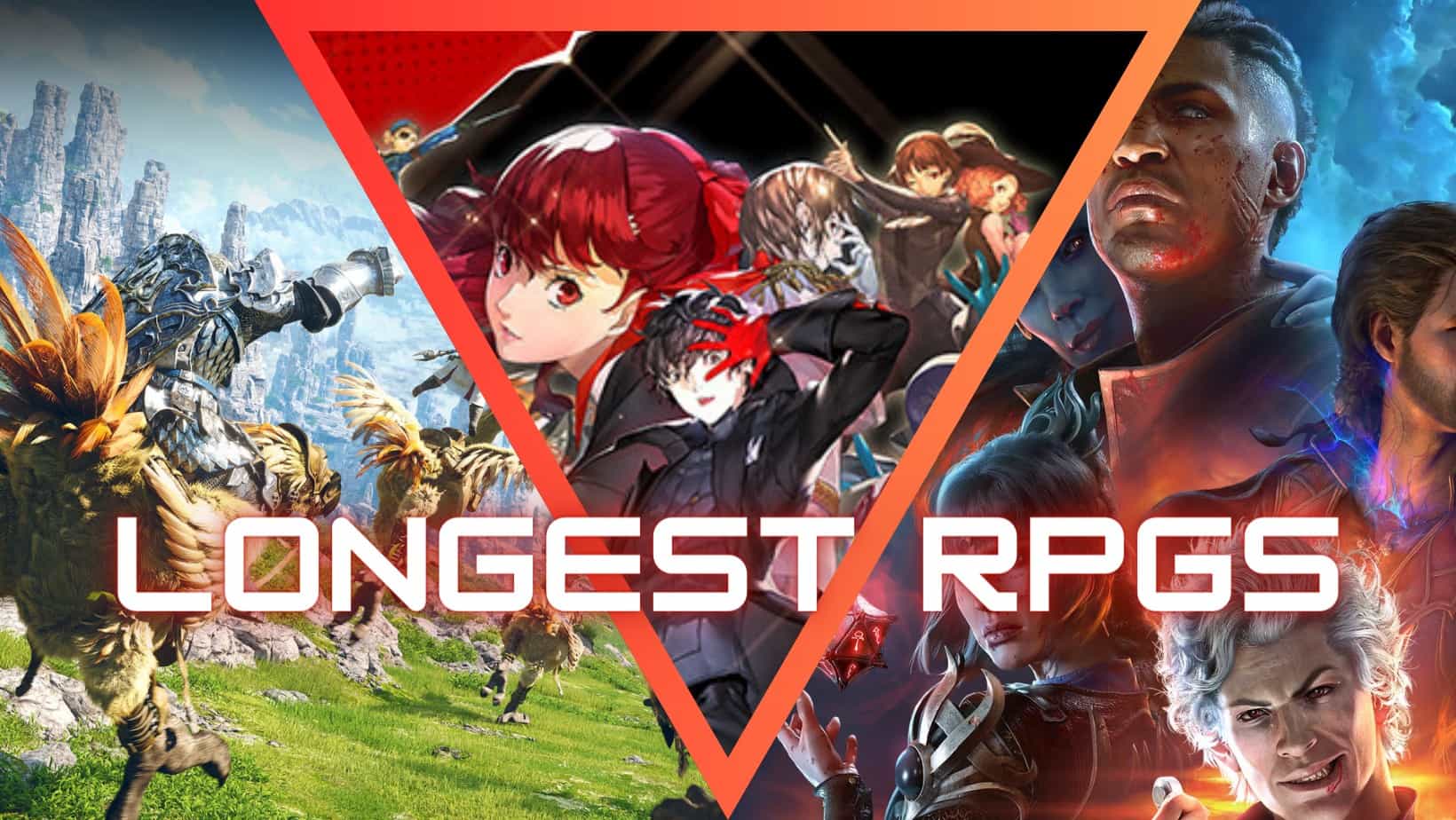The role-playing game (RPG) genre is renowned for immersive stories, complex characters, and vast worlds teeming with quests. Whether you’re saving a kingdom from an ancient evil or forging alliances with mythical creatures, RPGs offer a level of engagement that few other genres can match. These games allow players to sink hours, days, or even months into intricate narratives and extensive quest lines. For those who relish long gaming sessions, RPGs with hundreds of quests provide endless adventures. This article delves into some of the most extended games to beat in the RPG genre, exploring what makes them captivating.
Immersive World-Building and Endless Quests
RPGs have a magical ability to transport players into meticulously crafted worlds teeming with life, lore, and adventure. These games are famous for offering a plethora of quests that often interlink and branch out, forming an intricate web of objectives that promises hours of engagement. The hallmark of the longest games to beat is their quest-rich environment, which offers a perfect blend of main story arcs, side missions, and hidden challenges. This complexity allows players to immerse themselves fully, exploring every facet of the game world.
The Allure of Intricate Storytelling
At the heart of every great RPG lies an intricate story that captivates players. Developers spend countless hours crafting narratives that resonate deeply, inviting players to lose themselves in epic tales filled with twists and turns. Whether it’s a sprawling epic that spans continents or a personal journey of self-discovery, the storylines in RPGs are designed to pull players deeper into the game. These compelling narratives elevate the mundane to the extraordinary, turning simple quests into epic adventures that are both emotionally and intellectually satisfying.
Expansive Worlds Beckoning Exploration
One of the most enticing features of RPGs is their expansive worlds, each brimming with secrets, hidden locations, and unique characters. These worlds are meticulously designed to encourage exploration, often filled with lore that adds depth to the primary narrative. Players can spend countless hours wandering through lush forests, desolate wastelands, bustling cities, and ancient ruins while encountering diverse characters and unearthing hidden treasures. The sense of discovery and the thrill of adventure are constant companions, making every exploration a rewarding experience.
The Layered Complexity of RPG Quests
Quests in RPGs are not just tasks to complete but integral parts of a more extensive, interconnected web of the game’s narrative framework. The main story quests guide players through the central plot, while side quests and optional missions add richness and variety. These quests often have multiple layers, presenting players with choices that can alter the course of the game. This layered complexity ensures that no two playthroughs are identical, offering replayability and depth. Whether solving intricate puzzles, engaging in strategic combat, or negotiating with NPCs, each quest adds a unique texture to the gaming experience.
Technological Advancements and Realistic Environments
Modern RPGs benefit significantly from technological advancements that allow for more realistic and immersive environments. High-definition graphics, advanced physics engines, and sophisticated AI contribute to creating living, breathing worlds. These technological innovations allow developers to build complex systems and environments that react dynamically to player actions. The level of detail in character models, animations, and world textures adds to the immersion, making players feel part of a tangible, evolving universe. Such advancements enhance the visual appeal and provide more profound, engaging gameplay mechanics.
Balancing Real Life with RPG Marathons
While the lure of a long RPG can be irresistible, balancing gaming and real-life responsibilities is essential. Extended gaming sessions can lead to physical strain and mental fatigue if not appropriately managed. Gamers should ensure they take regular breaks, stay hydrated, and engage in physical activity to counter the passive nature of gaming. Setting time limits and having a schedule can help manage gaming time effectively without letting it interfere with daily responsibilities. Maintaining a healthy balance allows players to enjoy their RPG adventures without compromising their well-being.
Community and Social Connectivity
The social aspect of RPGs significantly enhances the gaming experience. Whether through multiplayer features, online forums, or social media groups, community engagement adds an extra layer of enjoyment. Players can team up to tackle challenging quests, share tips and strategies, or celebrate their in-game achievements with others. This sense of community fosters camaraderie and shared purpose, making the gaming experience more fulfilling. Interaction with fellow players can also provide new perspectives and insights, adding to the richness of the game world.
The Role of Player Choices
One of the defining characteristics of RPGs is the emphasis on player choices and the consequences of those choices. Players control their in-game experience significantly, from character customization to quest decision-making. These choices often lead to different story paths, multiple endings, and varied gameplay experiences. The ability to shape the narrative according to one’s decisions adds a layer of personalization that makes the game uniquely satisfying. It turns each quest into a meaningful journey, where players’ actions directly influence the world around them.
Preparing for an RPG Marathon
Because of the immense breadth of role-playing games, being prepared might mean the difference between a fun gaming session and a tedious grind. The experience can be improved by spending money on ergonomic furniture, premium peripherals, and a cozy gaming setting. Players should eat healthy snacks and drinks to stay nourished during long sessions. Planning the gaming sessions around daily responsibilities ensures players can fully immerse themselves in the game without interruptions. Setting specific goals for each session can also provide a sense of accomplishment and keep the experience rewarding.
The Impact of Replayability
RPGs with high replayability offer immense value by providing new experiences with each playthrough. Different character builds, alternative story paths, and varied quest outcomes ensure that all playthroughs are unique. This replayability keeps players returning, exploring various facets of the game world, and discovering new stories and challenges. The depth and complexity of these games mean that players can continue to find new content and experiences long after their initial playthrough, extending the game’s life and enhancing its appeal.
In Conclusion
The world of RPGs offers a rich tapestry of stories, quests, and adventures that can captivate players for hours on end. From intricate storytelling and expansive worlds to the layered complexity of quests and technological advancements, RPGs provide an unparalleled gaming experience. However, balancing this passion with real-life responsibilities and health considerations is crucial for a sustainable and enjoyable gaming experience. By approaching RPG marathons with the proper preparation and mindset, players can embark on epic quests that are both fulfilling and memorable.

 Methods for Creating High-Quality Custom Apparel with Direct-to-Film Transfers
Methods for Creating High-Quality Custom Apparel with Direct-to-Film Transfers  How SASE Solutions Empower Productive Workforces in a Digital Era
How SASE Solutions Empower Productive Workforces in a Digital Era  Excel vs PDF: Which Dominates Document Sharing in 2025? (Data-Driven Comparison)
Excel vs PDF: Which Dominates Document Sharing in 2025? (Data-Driven Comparison)  TitaniumInvest.com Money 2024: AI‑Driven Tools Outperform Traditional Banking
TitaniumInvest.com Money 2024: AI‑Driven Tools Outperform Traditional Banking  Why Your Link Building Efforts Might Fail
Why Your Link Building Efforts Might Fail  How to Request or Give Remote Control in a FaceTime Call on iPhone
How to Request or Give Remote Control in a FaceTime Call on iPhone  The Rise of Intelligent Automation in Business Operations
The Rise of Intelligent Automation in Business Operations  The Best Ideas for Designing Your Custom Printed Ring Binder
The Best Ideas for Designing Your Custom Printed Ring Binder  How Technology is Changing the Way We Play Hearts
How Technology is Changing the Way We Play Hearts 